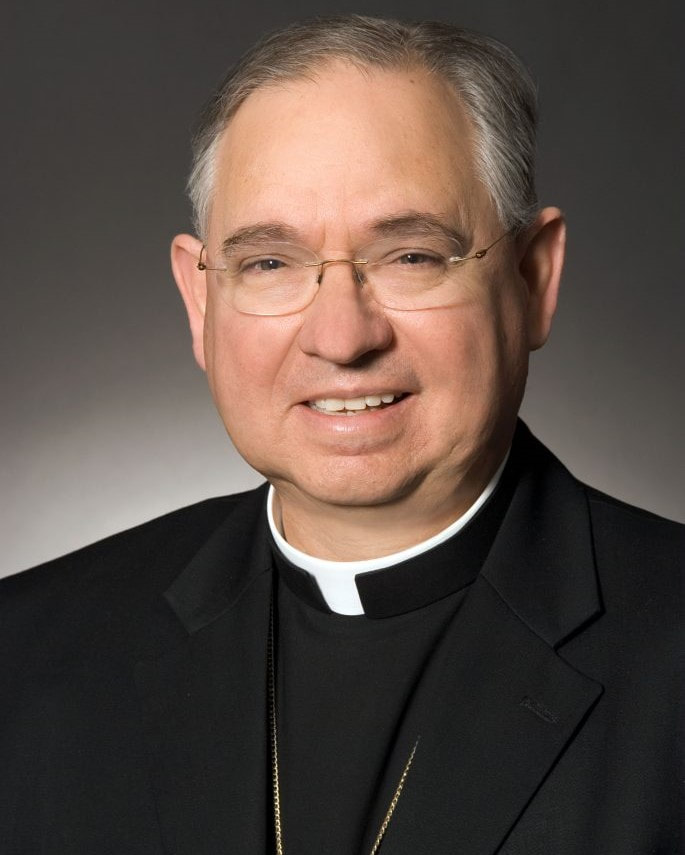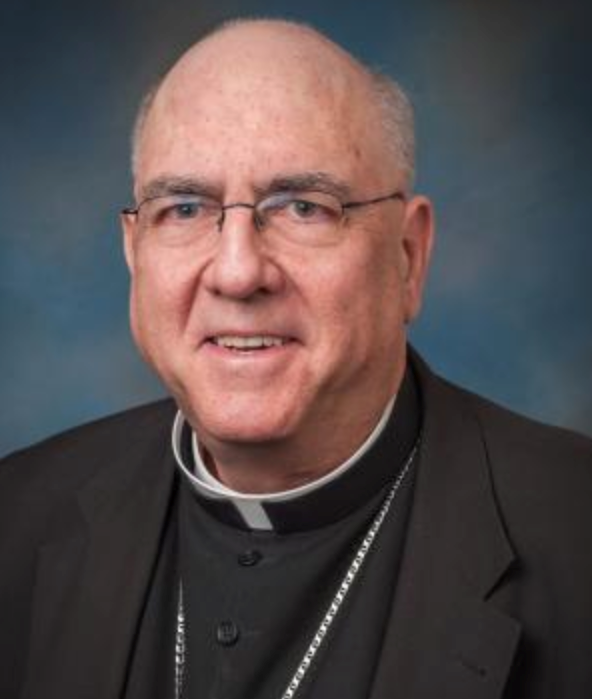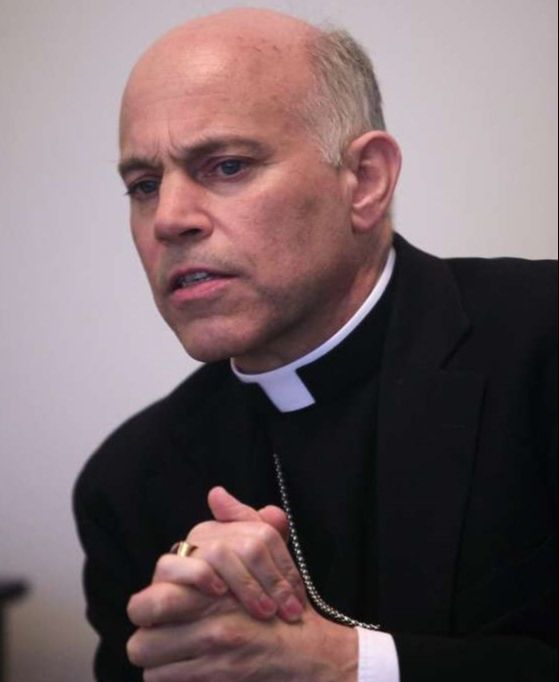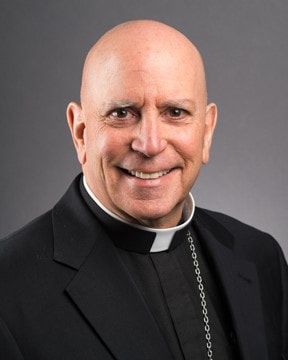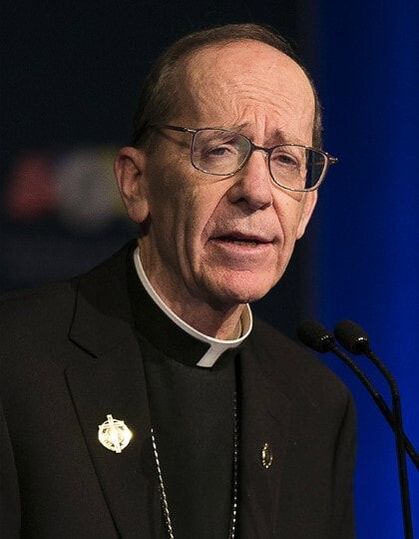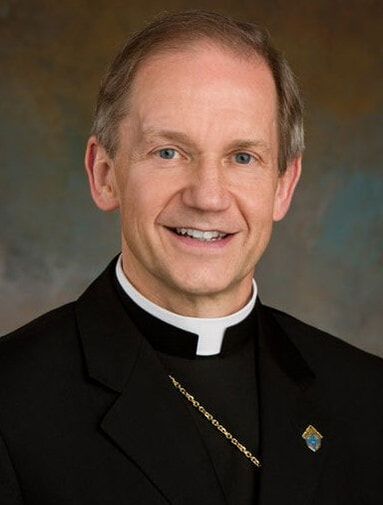U. S. Bishops Leading the Abortion-Communion Debate
THE U.S. BISHOPS AND POPE FRANCIS' REFORM:
DREAMS FOR A DIALOGUE IN THE SPIRIT
John R. Connolly
Is it but a dream to hope that the Spirit might enlighten and inspire the U.S. bishops, as a whole body, to become open to accepting and endorsing Pope Francis’ efforts to reform the Catholic Church according to the teachings of the Second Vatican Council? From the beginning of Francis’ papacy, a majority of the Catholic U.S. Bishops, led by an active and more vocal smaller group of bishops, have openly opposed the pope’s vision of reform and the direction and contents of his vision for the church. The majority of the U.S. bishops were appointed by John Paul II and Benedict XVI and they identify the Catholic Church with the vision of these two popes. John Paul II and Benedict XVI proclaimed and fostered an ecclesiology that emphasized the institutional church and a dogmatic approach to evangelization. Both popes downplayed, to say the least, the themes of the ecclesiology of the Second Vatican Council (1962-65) and attempted to recreate a twentieth century version of the church of the First Vatican Council (1870). Although the bishops who are opposing Pope Francis’ reform are in the majority, there are approximately 60 U.S. bishops who are open to and support the pope’s vision for the reform of the Catholic Church.
Today, this division among the U.S. bishops has reached a crisis point in the present abortion-communion debate taking place in the U.S. Conference of Catholic bishops. Not only does this debate reveal fundamental and serious disagreements between the U.S. bishops on the issues of abortion and the reception of communion, it seemingly has destroyed the possibility of any unified teaching by the U.S. bishops on these issues and has divided Catholics in the United States into opposing camps. De facto the Catholic Church in the U.S. is a divided and contentious church with no end to this turmoil in site. The fundamental cause of these divisions is not the Catholic Church’s teaching on the Eucharist, but the U.S. bishops’ rejection of Pope Francis’ teaching on abortion in preference to their own view of the “preeminent priority" of abortion.
Pope Francis teaches that abortion and all the Catholic Church’s teachings on respect for life are “equally sacred.” In Evangelii Gaudium he affirms the Catholic Church’s constant concern for those who are vulnerable, among whom are the unborn who are “the most defenseless and innocent among us.” (EG, 213). Pope Francis goes on to point out that the church’s defense of the unborn is “closely linked to the defense of each and every other human right.” (EG, 213). The church’s teaching on abortion “involves the conviction that a human being is always sacred and inviolable, in any situation and at every stage of development.” (EG, 213). According to Francis an authentic Catholic pro-life position means viewing all of the church’s teachings on respect for human life as “equally sacred.” Anyone who maintains that they can accept the church’s teaching on abortion, while rejecting, or ignoring, its teachings on racism, the care for immigrants and refugees, respect for the environment, poverty, and health care cannot claim to be supporting the Catholic Church’s teaching on the sacredness of all human life. According to this understanding, abortion cannot be singled out as a special and unique category of sin.
On the other hand, the U.S. bishops have accepted the view that abortion must be given a “preeminent priority” over all the other Catholic teachings related to respect for life. The bishops admit that all the other issues that threaten human life and dignity cannot be dismissed or ignored, but abortion supersedes and overrides the claims of all the other respect for life issues. At the November, 2019, meeting of the U.S. conference of Catholic bishops the majority of the bishops voted to give their view the priority over the view of Pope Francis’ teaching. Although Francis’ view is summarized in the introductory letter to the U.S. bishops 2020 voting guide document, the bishops present their own view as the church’s normative teaching on abortion in the body of the document. At the same time, it should be noted that a minority of the U.S. bishops spoke in favor of Pope Francis’ view and for giving it a more prominent place in the document. The validity of the U.S. bishops’ efforts to deny communion to Joe Biden and Catholic politicians is totally dependent upon their teaching on the “preeminent priority” of abortion. It is their acceptance of this teaching that allows U.S. bishops to prohibit Catholic politicians from receiving communion on the basis of the issue of abortion alone. Also, the teaching on the “preeminent priority” of abortion allows the bishops to identify the church’s teaching on abortion with their own public political agenda which has the ultimate objective of making the teachings of the church the laws of the United States government. It seems that “preeminent priority” is less a teaching on abortion and more a statement of a political strategy adopted by the U.S. bishops conference to accomplish their objective of overturning Roe v. Wade and making abortion illegal in the United States.
In spite of recommendations from Rome, through Cardinal Ladaria’s letter, that the U.S. bishops slow down their abortion-communion deliberations and consider its disunifying effects, the majority of the U.S. bishops, with strong opposition from a sizeable minority, voted to continue to pursue their abortion-communion agenda. They rejected the suggestion that they discuss the issues among themselves and try to come to a consensus on the doctrinal issues. The letter also suggested that the U.S. bishops’ might consider further reflection on their teaching on the “preeminent priority” of abortion by not giving “the impression that abortion and euthanasia alone constitute the only grave matters of Catholic social teaching that demand the fullest accountability on the part of Catholics.”
Is it too much of a farfetched dream to suggest that the Holy Spirit is speaking to the U.S. bishops in these recommendations? Could this be the moment for them to reconsider their opposition to Pope Francis’ reform, to become open to reconsidering their teaching on the “preeminent priority” of abortion? Is this not the moment to humbly reconsider their own doctrinal and political agendas, to feel the confusion, the divisions between Pope Francis and themselves, the divisions among themselves, and the divisions among Catholics in the United States? Is it not time to begin to listen to others, to listen to the Spirit?
7/5/2021
Is it but a dream to hope that the Spirit might enlighten and inspire the U.S. bishops, as a whole body, to become open to accepting and endorsing Pope Francis’ efforts to reform the Catholic Church according to the teachings of the Second Vatican Council? From the beginning of Francis’ papacy, a majority of the Catholic U.S. Bishops, led by an active and more vocal smaller group of bishops, have openly opposed the pope’s vision of reform and the direction and contents of his vision for the church. The majority of the U.S. bishops were appointed by John Paul II and Benedict XVI and they identify the Catholic Church with the vision of these two popes. John Paul II and Benedict XVI proclaimed and fostered an ecclesiology that emphasized the institutional church and a dogmatic approach to evangelization. Both popes downplayed, to say the least, the themes of the ecclesiology of the Second Vatican Council (1962-65) and attempted to recreate a twentieth century version of the church of the First Vatican Council (1870). Although the bishops who are opposing Pope Francis’ reform are in the majority, there are approximately 60 U.S. bishops who are open to and support the pope’s vision for the reform of the Catholic Church.
Today, this division among the U.S. bishops has reached a crisis point in the present abortion-communion debate taking place in the U.S. Conference of Catholic bishops. Not only does this debate reveal fundamental and serious disagreements between the U.S. bishops on the issues of abortion and the reception of communion, it seemingly has destroyed the possibility of any unified teaching by the U.S. bishops on these issues and has divided Catholics in the United States into opposing camps. De facto the Catholic Church in the U.S. is a divided and contentious church with no end to this turmoil in site. The fundamental cause of these divisions is not the Catholic Church’s teaching on the Eucharist, but the U.S. bishops’ rejection of Pope Francis’ teaching on abortion in preference to their own view of the “preeminent priority" of abortion.
Pope Francis teaches that abortion and all the Catholic Church’s teachings on respect for life are “equally sacred.” In Evangelii Gaudium he affirms the Catholic Church’s constant concern for those who are vulnerable, among whom are the unborn who are “the most defenseless and innocent among us.” (EG, 213). Pope Francis goes on to point out that the church’s defense of the unborn is “closely linked to the defense of each and every other human right.” (EG, 213). The church’s teaching on abortion “involves the conviction that a human being is always sacred and inviolable, in any situation and at every stage of development.” (EG, 213). According to Francis an authentic Catholic pro-life position means viewing all of the church’s teachings on respect for human life as “equally sacred.” Anyone who maintains that they can accept the church’s teaching on abortion, while rejecting, or ignoring, its teachings on racism, the care for immigrants and refugees, respect for the environment, poverty, and health care cannot claim to be supporting the Catholic Church’s teaching on the sacredness of all human life. According to this understanding, abortion cannot be singled out as a special and unique category of sin.
On the other hand, the U.S. bishops have accepted the view that abortion must be given a “preeminent priority” over all the other Catholic teachings related to respect for life. The bishops admit that all the other issues that threaten human life and dignity cannot be dismissed or ignored, but abortion supersedes and overrides the claims of all the other respect for life issues. At the November, 2019, meeting of the U.S. conference of Catholic bishops the majority of the bishops voted to give their view the priority over the view of Pope Francis’ teaching. Although Francis’ view is summarized in the introductory letter to the U.S. bishops 2020 voting guide document, the bishops present their own view as the church’s normative teaching on abortion in the body of the document. At the same time, it should be noted that a minority of the U.S. bishops spoke in favor of Pope Francis’ view and for giving it a more prominent place in the document. The validity of the U.S. bishops’ efforts to deny communion to Joe Biden and Catholic politicians is totally dependent upon their teaching on the “preeminent priority” of abortion. It is their acceptance of this teaching that allows U.S. bishops to prohibit Catholic politicians from receiving communion on the basis of the issue of abortion alone. Also, the teaching on the “preeminent priority” of abortion allows the bishops to identify the church’s teaching on abortion with their own public political agenda which has the ultimate objective of making the teachings of the church the laws of the United States government. It seems that “preeminent priority” is less a teaching on abortion and more a statement of a political strategy adopted by the U.S. bishops conference to accomplish their objective of overturning Roe v. Wade and making abortion illegal in the United States.
In spite of recommendations from Rome, through Cardinal Ladaria’s letter, that the U.S. bishops slow down their abortion-communion deliberations and consider its disunifying effects, the majority of the U.S. bishops, with strong opposition from a sizeable minority, voted to continue to pursue their abortion-communion agenda. They rejected the suggestion that they discuss the issues among themselves and try to come to a consensus on the doctrinal issues. The letter also suggested that the U.S. bishops’ might consider further reflection on their teaching on the “preeminent priority” of abortion by not giving “the impression that abortion and euthanasia alone constitute the only grave matters of Catholic social teaching that demand the fullest accountability on the part of Catholics.”
Is it too much of a farfetched dream to suggest that the Holy Spirit is speaking to the U.S. bishops in these recommendations? Could this be the moment for them to reconsider their opposition to Pope Francis’ reform, to become open to reconsidering their teaching on the “preeminent priority” of abortion? Is this not the moment to humbly reconsider their own doctrinal and political agendas, to feel the confusion, the divisions between Pope Francis and themselves, the divisions among themselves, and the divisions among Catholics in the United States? Is it not time to begin to listen to others, to listen to the Spirit?
7/5/2021
